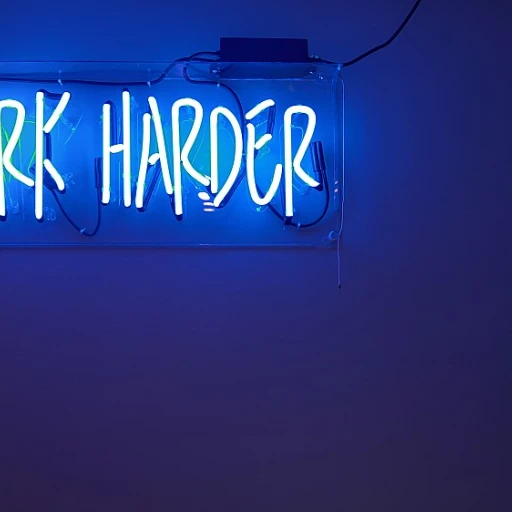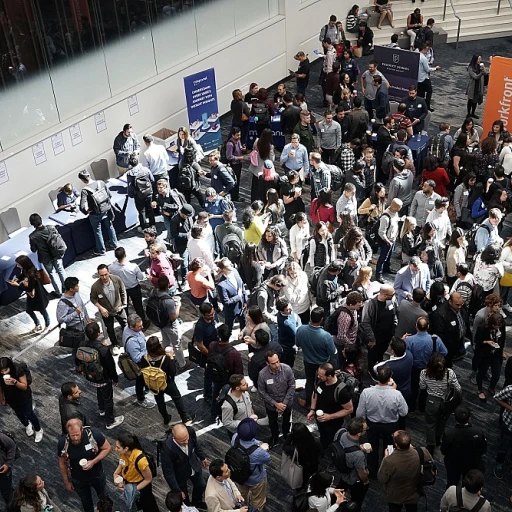
Understanding the main hr training process problems
Common Obstacles in Employee Training and Onboarding
Human resources teams face a range of challenges when managing the training process for employees. One of the most persistent issues is ensuring that the onboarding process is smooth and effective. Many employees feel overwhelmed during onboarding, especially when the process lacks structure or fails to address individual learning needs. This can negatively impact employee experience and engagement from the very start.
Skills Gaps and Training Development
Another significant challenge is identifying and closing the skills gap within the workforce. Traditional training programs often struggle to keep pace with the evolving needs of the company and its employees. Training development can be time-consuming, and outdated materials may not reflect the current demands of the job or the company culture. As a result, employees may not develop the management skills or technical expertise required for optimal performance.
Performance Management and Feedback Loops
Performance management is closely tied to the effectiveness of training and development programs. Without timely feedback and regular check ins, employees may not understand how their performance aligns with company expectations. This can hinder both individual growth and overall business outcomes. Furthermore, the lack of actionable analytics makes it difficult for HR teams to measure the impact of training processes and adjust strategies accordingly.
Conflict Management and Company Culture
Conflict resolution and conflict management are also critical components of HR training. Poorly managed conflicts can disrupt the workplace, damage company culture, and reduce employee engagement. Training programs must equip employees and managers with the skills to handle disputes constructively, but not all organizations have the resources or expertise to deliver this effectively.
Resource Constraints and Technology Limitations
HR departments often operate with limited resources, making it challenging to deliver personalized training at scale. Manual processes and outdated software can slow down the onboarding experience and hinder the development of effective training programs. As organizations grow, these limitations become more pronounced, affecting both employee performance and retention.
For those interested in exploring how technology can support these challenges, there are innovative approaches to career coaching with AI-powered assistants that are beginning to reshape the landscape of HR training and development.
How artificial intelligence is changing HR training
AI-Powered Personalization in Training and Onboarding
Artificial intelligence is transforming the employee training process by enabling a level of personalization that was previously difficult to achieve. AI-driven platforms can analyze employee skills, experience, and learning preferences to recommend tailored training programs. This approach helps address the skills gap and ensures that employees feel supported throughout their development journey. For example, during the onboarding process, AI can adapt training modules to match each new hire’s background, making the onboarding experience smoother and more engaging.
Streamlining Management and Reducing Administrative Burden
AI tools are automating repetitive tasks in human resources, such as scheduling training sessions, tracking employee progress, and managing feedback. This automation frees up HR professionals to focus on higher-value activities like conflict resolution, employee engagement, and company culture initiatives. By integrating AI into performance management and check ins, organizations can ensure that employees receive timely feedback and support, which improves overall performance and retention.
Enhancing Analytics for Better Decision-Making
With AI-powered analytics, HR teams can gain deeper insights into training effectiveness, employee development, and resource allocation. These analytics help identify trends, measure the impact of training programs, and highlight areas where additional support may be needed. This data-driven approach supports more informed decisions about training development and management skills, ultimately leading to a stronger company culture and improved employee experience.
Supporting Conflict Management and Employee Engagement
AI is also being used to monitor employee sentiment and flag potential conflicts before they escalate. By analyzing communication patterns and feedback, AI can help HR teams proactively address issues, support conflict management, and foster a positive work environment. This contributes to higher employee engagement and a more cohesive workplace culture.
For organizations looking to align their training and development programs with long-term business goals, exploring strategic succession planning can provide valuable insights into how AI supports talent management and future leadership development.
Identifying gaps in current AI-powered HR training solutions
Where AI-Powered Training Solutions Fall Short
AI is transforming the HR training process, but there are still notable gaps that HR teams and management need to address. While AI-driven platforms can automate onboarding, personalize development programs, and provide real-time analytics, they are not a cure-all for every challenge in employee training and management.- Limited Contextual Understanding: AI-powered software often struggles to grasp the nuances of company culture, employee experience, and the unique challenges training programs face in different organizations. This can lead to generic recommendations that do not fully align with the company’s values or the specific skills gap present among employees.
- Feedback and Human Touch: Automated feedback and check ins can improve efficiency, but they may lack the empathy and insight that human resources professionals bring to conflict management, employee engagement, and performance management. Employees feel more valued when feedback is personalized and context-aware.
- Onboarding Experience: While AI can streamline the onboarding process, it may not always address the emotional and social aspects that help new employees integrate into the company. A strong onboarding experience is about more than just process efficiency—it’s about fostering a sense of belonging and understanding company culture.
- Conflict Resolution and Management Skills: AI tools can assist with identifying potential conflicts or performance issues, but they are less effective at resolving interpersonal disputes or developing management skills that require emotional intelligence and nuanced judgment.
- Data Quality and Relevance: The effectiveness of AI in training development and performance management depends heavily on the quality of data fed into the system. Inaccurate or incomplete data can lead to poor analytics and misguided recommendations, impacting employee development and overall company performance.
Overcoming bias and fairness issues in AI-driven training
Recognizing and Reducing Bias in AI Training Tools
As artificial intelligence becomes more integrated into the HR training process, concerns about bias and fairness are growing. AI-powered training programs, onboarding software, and analytics tools can unintentionally reinforce existing biases if not carefully managed. This can affect employee experience, performance management, and even conflict resolution efforts.
Bias can enter the process at several stages, from the data used to train AI models to the algorithms themselves. For example, if historical employee data reflects past inequalities or lacks diversity, AI systems may perpetuate those patterns in training development or employee onboarding recommendations. This can impact how employees feel about company culture and their opportunities for development.
Strategies for Fair and Inclusive AI Training
- Diverse Data Sets: Use data that represents the full spectrum of your workforce. This helps reduce the risk of reinforcing stereotypes in training programs or employee handbooks.
- Regular Audits: Routinely check AI-driven management and training software for biased outcomes. Analytics can help identify if certain groups are being overlooked in development programs or performance management processes.
- Transparent Algorithms: Work with vendors who provide clear explanations of how their AI systems make decisions. This transparency supports trust and accountability in HR management.
- Human Oversight: Combine AI recommendations with human judgment, especially in sensitive areas like conflict management, onboarding experience, or feedback delivery. Human resources professionals should always have the final say in decisions that affect employees.
By proactively addressing bias and fairness, HR teams can ensure that AI-powered training solutions support employee engagement, skills development, and a positive company culture. This approach not only improves the onboarding process and training development but also helps close the skills gap and fosters a more inclusive workplace.
Ensuring data privacy and security in AI-based HR training
Building Trust Through Responsible Data Practices
When integrating artificial intelligence into HR training, data privacy and security become top priorities. HR teams handle sensitive employee information throughout the training process, from onboarding to performance management and ongoing development programs. Protecting this data is essential to maintain trust and ensure compliance with regulations. AI-powered training software often collects and analyzes data on employee performance, skills, feedback, and engagement. This data can help identify skills gaps, personalize training programs, and improve the overall employee experience. However, it also raises concerns about how employee data is stored, accessed, and used.- Transparency: Employees should be informed about what data is collected during training and onboarding, how it will be used, and who will have access. Clear communication helps employees feel respected and builds a positive company culture.
- Access Controls: Limit access to sensitive data to only those in management or HR who need it for training development, conflict resolution, or performance management. Regularly review permissions to prevent unauthorized access.
- Data Minimization: Collect only the data necessary for improving training processes and employee engagement. Avoid gathering excessive information that could increase risk if a breach occurs.
- Secure Storage: Use encrypted databases and secure cloud solutions to store employee data. Regular security audits and updates to software help protect against cyber threats.
- Compliance: Stay updated on data protection laws relevant to your region and industry. This includes GDPR, CCPA, or other regulations that impact how employee data is managed during onboarding and training.
Balancing Analytics and Privacy
AI-driven analytics can offer valuable insights into employee performance, training effectiveness, and company culture. However, HR teams must balance the benefits of analytics with the need to protect individual privacy. Anonymizing data where possible and using aggregated reports can help maintain confidentiality while still supporting data-driven decision making. Regular check ins with employees about their comfort level with data use can also strengthen trust. When employees know their information is handled responsibly, they are more likely to engage with training programs and provide honest feedback, improving the overall onboarding experience and development outcomes. Ultimately, prioritizing data privacy and security in AI-based HR training not only protects employees but also supports a healthy, transparent workplace culture where everyone can thrive.Practical steps for HR teams to address training process problems with AI
Building a Foundation for AI-Driven Training Success
Integrating artificial intelligence into the HR training process requires a thoughtful approach. HR teams should focus on aligning AI tools with the company’s culture and business goals, ensuring that technology enhances—not replaces—the human aspect of training and development. Here are practical steps to help HR professionals address challenges in training development, employee onboarding, and performance management using AI:
- Assess current processes and identify pain points. Start by mapping out the existing training process, onboarding experience, and employee development programs. Look for bottlenecks, skills gaps, or areas where employees feel disengaged. This helps in selecting the right AI-powered solutions for specific needs.
- Choose AI software that fits your resources and goals. Evaluate AI tools based on their ability to support employee onboarding, training programs, and conflict management. Consider analytics features that provide actionable feedback and support ongoing check ins with employees.
- Prioritize data privacy and security. When implementing AI in HR, ensure that employee data is protected. Work with IT and legal teams to establish clear guidelines for data usage, storage, and access. This builds trust and supports a positive employee experience.
- Address bias and fairness proactively. Regularly review AI-driven training content and analytics to identify potential bias. Involve diverse stakeholders in the development and evaluation of training materials to promote fairness and inclusivity.
- Encourage feedback and continuous improvement. Create channels for employees to share their experiences with AI-powered training and onboarding. Use this feedback to refine processes, improve management skills, and enhance the overall employee handbook and company culture.
- Invest in training for HR teams. Equip HR professionals with the knowledge to manage AI tools effectively. This includes understanding analytics, interpreting performance data, and using AI to support conflict resolution and employee engagement.
By following these steps, HR teams can leverage AI to streamline training development, improve the onboarding process, and foster a culture of continuous learning. The result is a more efficient, data-driven approach that supports employee growth, enhances management, and strengthens the company’s overall performance.













